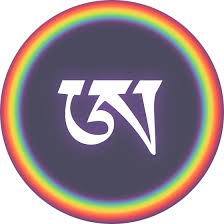Yangti Nakpo

The Yangti Nakpo (Tib. ཡང་ཏི་ནག་པོ་, Wyl. yang ti nag po), the Black Quintessence, or, to give its full title, The Single Golden Letter of the Black Quintessence (ཡང་ཏི་ནག་པོ་གསེར་གྱི་འབྲུ་གཅིག, yang ti nag po gser gyi 'bru gcig), is a cycle of Dzogchen teachings that includes practices focusing on dark retreat (Yangti). First discovered in the 15th century by Dungtso Repa 'the later', it was later rediscovered by Trulshik Dongak Lingpa, the previous incarnation of Trulshik Rinpoche. Therefore there are two lineages for the Yangti Nakpo: the long lineage transmission (ring gyu) from Dungtso Repa 'the later' and the short lineage (nyegyü) through Trulshik Dongak Lingpa.
Purpose
According to Tulku Sang-ngag Rinpoche, ‘Within the Nyingma system of Dzogchen there are the Mind category (Semdé), the Space category (Longdé), and Category of Pith Instructions (Mengakdé) classes of teachings. Within the Category of Pith Instructions, there are the Ati, Chiti, and Yangti levels of teaching. As the name suggests, the Yangti Nagpo teachings belong to the Yangti or quintessence class.’[1]
Revelation and Propagation of the Terma
Guru Rinpoche and Yeshé Tsogyal
The Yangti Nakpo was brought to Tibet by Guru Rinpoche and hidden as a terma by Yeshé Tsogyal.
Dungtso Repa 'the later'
In the 15th century, it was discovered by Dungtso Repa 'the later' at Lake Mandal Nakpo in the Gampo Region of central Tibet, who revealed a Dzogchen guru sadhana and a dark retreat instructions.
Chinkar Donyo Dorje
In the 19th century, Chinkar Donyo Dorje, a contemporary and close Dharma friend of Shabkar Tsokdruk Rangdrol, made further Yangti Nakpo revelations including the guru sadhana, Kusum Tuktik. At that time however, he stated the conditions were not right for these additions to the cycle to be disseminated, and that in his subsequent incarnation he would re-reveal and transmit these teachings.
Trulshik Dongag Lingpa
In the 19th century, the next incarnation of Chinkar Donyo Dorje was Trulshik Dongak Lingpa, who made the prophesied re-revelations of the Yangti Nagpo.
Shuksep Jetsünma and the 10th Datrul Rinpoche
Trulshik Dongak Lingpa bestowed the Yangti Ngakpo teachings to Lochen Chönyi Zangmo, aka Shuksep Jetsünma, (1853 or 1865-1950/1951), the renowned Nyingma master. Over the latter part of her life, Shuksep Jetsun made these teachings her main practice, spending three months a year in Yangti dark retreat.
Among the main other students of Trulshik Dongak Lingpa who received the Yangti Nakpo was Ngawang Tenzin Norbu, the 10th Dzatrul Rinpoche, who was who was a prophesied Chödak of the cycle.
Khetsün Zangpo Rinpoche and Trulshik Rinpoche
In the first part of the 20th century, one of the main lineage holders of the Yangti Nakpo was Trulshik Rinpoche(1924-2011), who painstakingly received from and practised the cycle with Shuksep Jetsünma and also from his root teacher Ngawang Tenzin Norbu. Trulshik Rinpoche wrote extensive commentaries on key points of both practice and ritual, Another main lineage holder of the Yangti Nakpo cycle was Khetsün Zangpo Rinpoche (1920-2009).
Primary main lineage holders
Amon the main current lineage holders are Kangyur Tulku Jigme Rinpoche (a grandson of Khetsün Zangpo Rinpoche) and Tulku Sang-ngag Rinpoche. Tulku Sang-ngag Rinpoche received these teachings from the late Trulshik Rinpoche who entrusted him to preserve and also transmit these teachings in the West. As a primary living lineage holder of Yangti Nagpo in the world today, Tulku Sang-ngag has taken upon himself the responsibility of upholding, preserving, and disseminating these unique practices throughout Asia and in the United States.
Notes
- ↑ Presentation of the lineage on Ewan Yangti.
Further Reading
- Kunsang, Erik Pema. Wellsprings of the Great Perfection. Rangjung Yeshe Publications, 2006, pp. 294-298
- Shabkar Tsogdruk Rangdrol, The Life of Shabkar: The Autobiography of a Tibetan Yogin, translated by Matthieu Ricard (Ithaca: Snow Lion Publications, 2001), page 63.